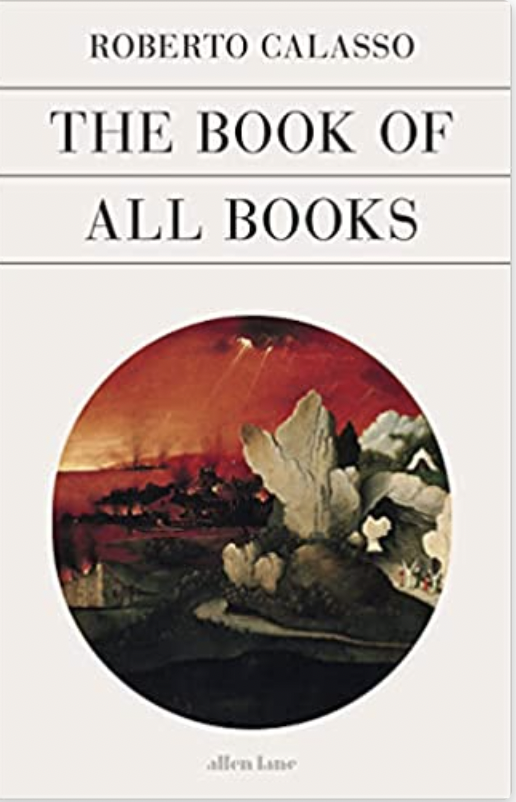
Gods invited into literature


Roberto Calasso weaves together and connects stories of ancient world with the thinking of Kafka, Weil, Nietzsche and Kierkegaard which promises and separation from one of the founding texts of Western civilisation, but omission of Hindu literature. These tales of grace and guilt, of the chosen and the damned, cast many Biblical figures and indeed the whole book in a light as astonishing as it is disquieting.
Roberto Calasso, who died earlier this year, was a master of myth, fluent in four modern languages, and three ancient languages. The Book of All Books, Calasso, offer reflections on evil, sacrifice and redemption.
A man named Saul is sent to search for some lost donkeys and on the way is named king of his people. The queen of a remote African realm travels for three years with her multitudinous retinue to meet the king of Jerusalem and pose him a few riddles. A man named Abraham hears a divine voice speaking words that reverberate throughout the Bible. “Go away from your land, from your kindred and from the house of your father toward the land that I will show you”.
The Book of All Books is part of a larger work which began with The Ruin of Kasch (1983) and includes The Marriage of Cadmus and Harmony, Ka and The Celestial Hunter.
Calasso’s controlling story, powerful narrative, that evokes and structures the complexity of human existence and existentially discloses truths about who we are.
Calasso’s title refers not only to the fact that the Bible is not a book but a collection, but also, more specifically, to an idea of Goethe’s that serves as his epigraph. Goethe wrote, “was given to us that we might try to enter there as into a second world, where we lose ourselves, enlighten ourselves, perfect ourselves”.
Calasso attempts beginning with the early Kings of Israel, he then loops back to Abraham, Moses and the creation, before returning to the destruction of the Temple and the coming of the Messiah.
Calasso is connecting the stories of Israel with those of classical Greece and Vedic India with moments of European literature and philosophy, as Kafka, Weil, Kierkegaard and Nietzsche flit across his pages and with the deep currents of human existence. Freud, fascinated by story of Moses, gets a whole chapter and Calasso links the tales with reflections on sacrifice, election, evil, separation and redemption – losing enlightening and perfecting himself in the process.
The Hebrew Bible, Calasso suggests offers something that modernity fails to. The “secular world machine” is like a company that rewards efficient employees and assigns the others more miserable jobs. The scientific world favours those who have temporarily avoided evil’s blows “ merely thanks to statistical probability.
The Book of All Books by Roberto Calasso, translated by Tim Parks, Allen Lane £25, 464 pages.
